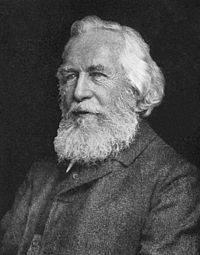Ernst Haeckel Scientist
Ernst Heinrich Philipp August Haeckel (German: [ˈhɛkəl]; 16 February 1834 – 9 August 1919) was a German biologist, naturalist, philosopher, physician, professor, and artist who discovered, described and named thousands of new species, mapped a genealogical tree relating all life forms, and coined many terms in biology, including anthropogeny, ecology, phylum, phylogeny, stem cell, and Protista. Haeckel promoted and popularised Charles Darwin's work in Germany and developed the controversial recapitulation theory ("ontogeny recapitulates phylogeny") claiming that an individual organism's biological development, or ontogeny, parallels and summarises its species' evolutionary development, or phylogeny.The published artwork of Haeckel includes over 100 detailed, multi-colour illustrations of animals and sea creatures (see: Kunstformen der Natur, "Art Forms of Nature"). As a philosopher, Ernst Haeckel wrote Die Welträtsel (1895–1899, in English, The Riddle of the Universe, 1901), the genesis for the term "world riddle" (Welträtsel); and Freedom in Science and Teaching to support teaching evolution.
Search
Ernst Haeckel on Wikipedia
External resources
- http://biodiversitylibrary.org/creator/1421
- http://de.wikiversity.org/wiki/Haeckel,_Ernst_(1868)
- http://de.wikiversity.org/wiki/Haeckel,_Ernst_(1899)
- http://draves.org/pix/kdn
- http://nbn-resolving.de/urn:nbn:de:hbz:061:2-170858
- http://nbn-resolving.de/urn:nbn:de:hbz:061:2-22176
- http://press.uchicago.edu/ucp/books/book/chicago/H/bo18785800.html
- http://www.biolib.de
- http://www.cppdigitallibrary.org/items/browse?advanced%5B0%5D%5Belement_id%5D=48&advanced%5B0%5D%5Btype%5D=contains&advanced%5B0%5D%5Bterms%5D=Haeckel%2C+Ernst%2C+1834-1919.+Anthropogenie%2C+oder%2C+Entwickelungsgeschichte+des+menschen
